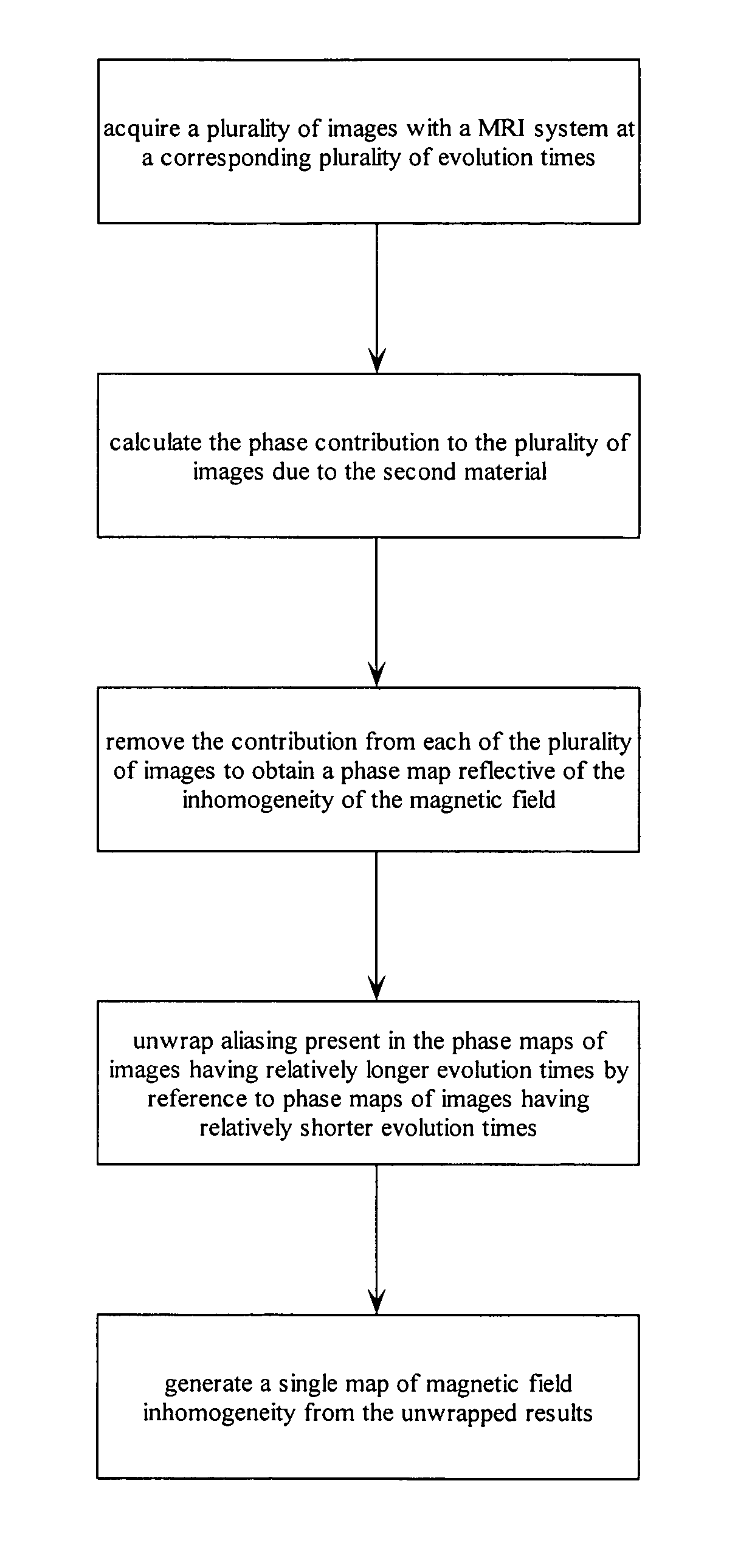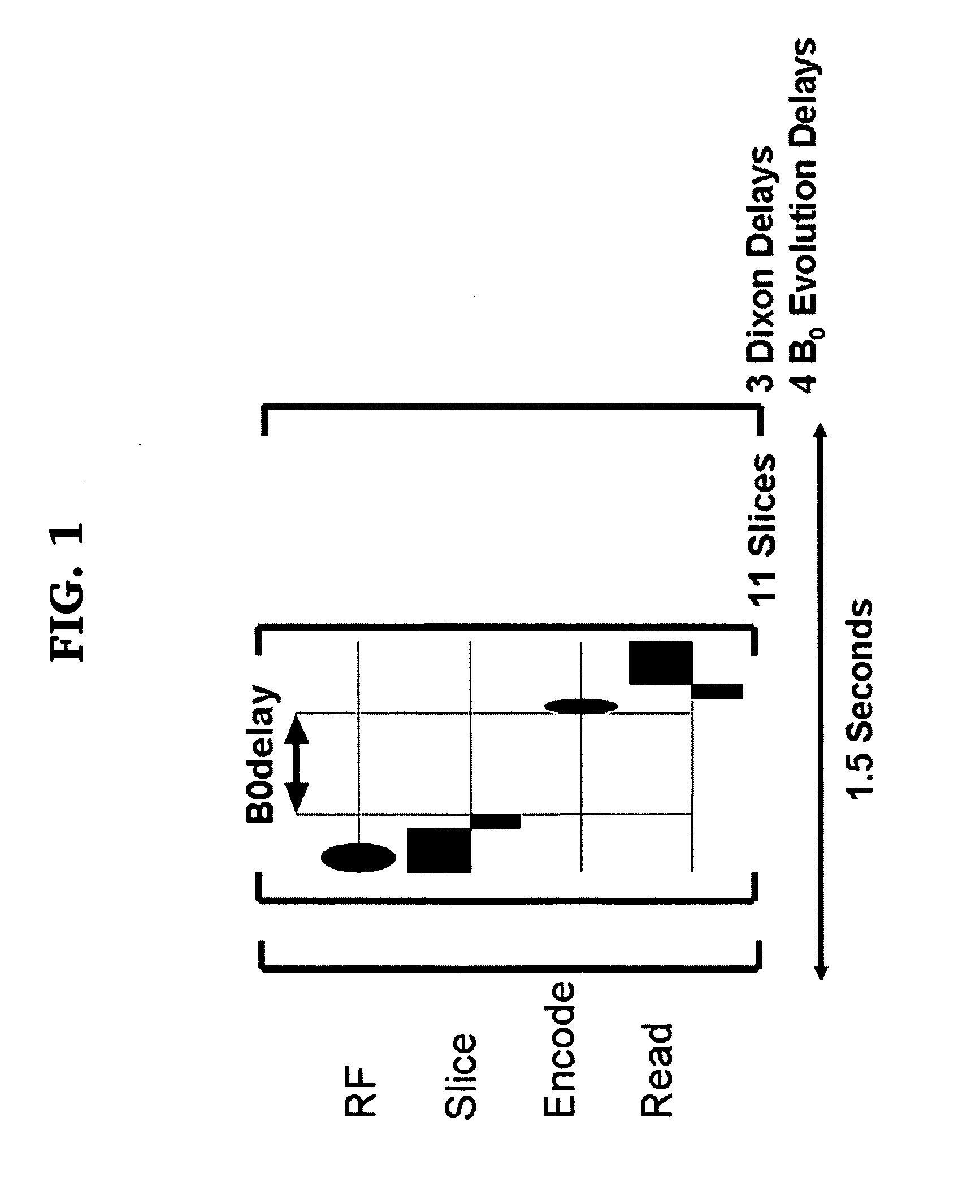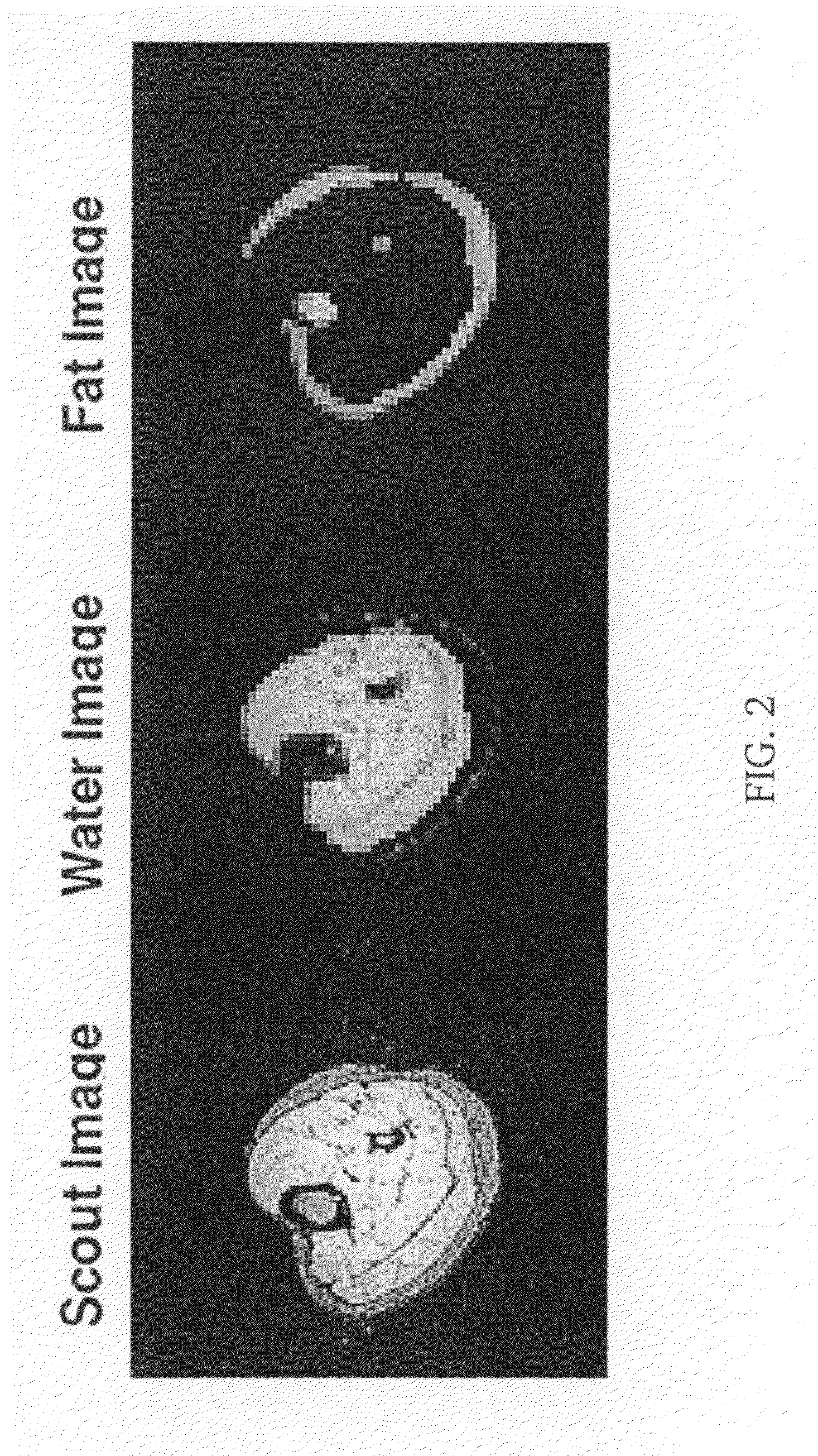Non iterative shimming in magnetic resonance imaging in the presence of high LIPID levels
a magnetic resonance imaging and high lipid level technology, applied in the field of magnetic resonance imaging, can solve the problems of limiting the accuracy of the bsub>0 /sub>map obtained, the number and geometry of the shim coil available, and the inhomogeneity which is more difficult to detect and correct, so as to extend the availability of methods
- Summary
- Abstract
- Description
- Claims
- Application Information
AI Technical Summary
Benefits of technology
Problems solved by technology
Method used
Image
Examples
Embodiment Construction
[0033]The invention provides a method for mapping the inhomogeneity of a magnetic field within an object in an MRI system, where the object contains a first and a second material, comprising the steps of:
[0034]a) acquiring a plurality of images with the MRI system at a corresponding plurality of evolution times,
[0035]b) calculating the phase contribution to the plurality of images due to the second material,
[0036]c) removing said contribution from each of the plurality of images to obtain a phase map reflective of the inhomogeneity of the magnetic field,
[0037]d) unwrapping aliasing present in the phase maps of images having relatively longer evolution times by reference to phase maps of images having relatively shorter evolution times, and
[0038]e) generating a single map of magnetic field inhomogeneity from the unwrapped results.
[0039]Preferably, the first material is water and the second material has a Larmor frequency different from that of water. Preferably, the second material i...
PUM
 Login to View More
Login to View More Abstract
Description
Claims
Application Information
 Login to View More
Login to View More - R&D
- Intellectual Property
- Life Sciences
- Materials
- Tech Scout
- Unparalleled Data Quality
- Higher Quality Content
- 60% Fewer Hallucinations
Browse by: Latest US Patents, China's latest patents, Technical Efficacy Thesaurus, Application Domain, Technology Topic, Popular Technical Reports.
© 2025 PatSnap. All rights reserved.Legal|Privacy policy|Modern Slavery Act Transparency Statement|Sitemap|About US| Contact US: help@patsnap.com



